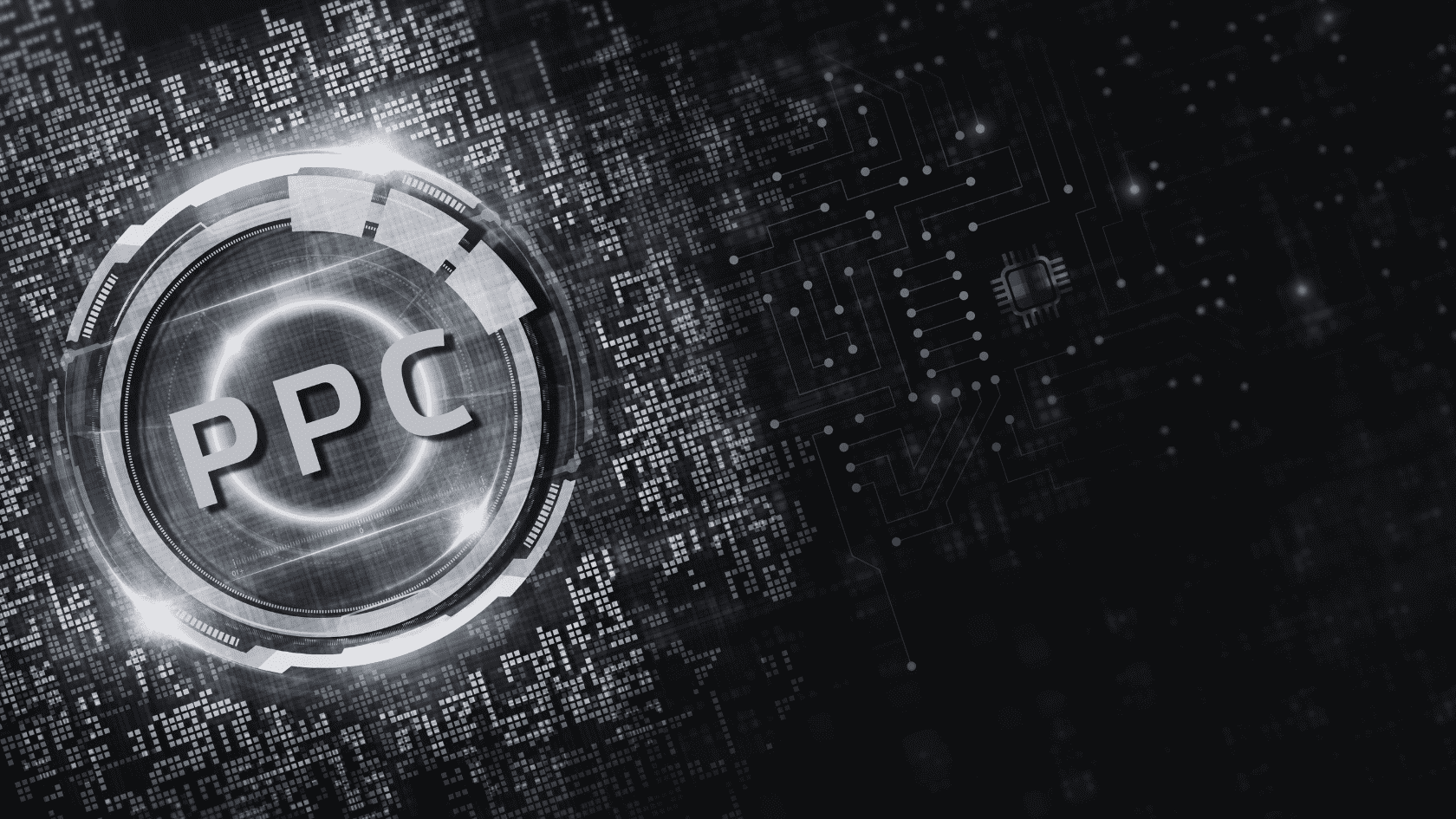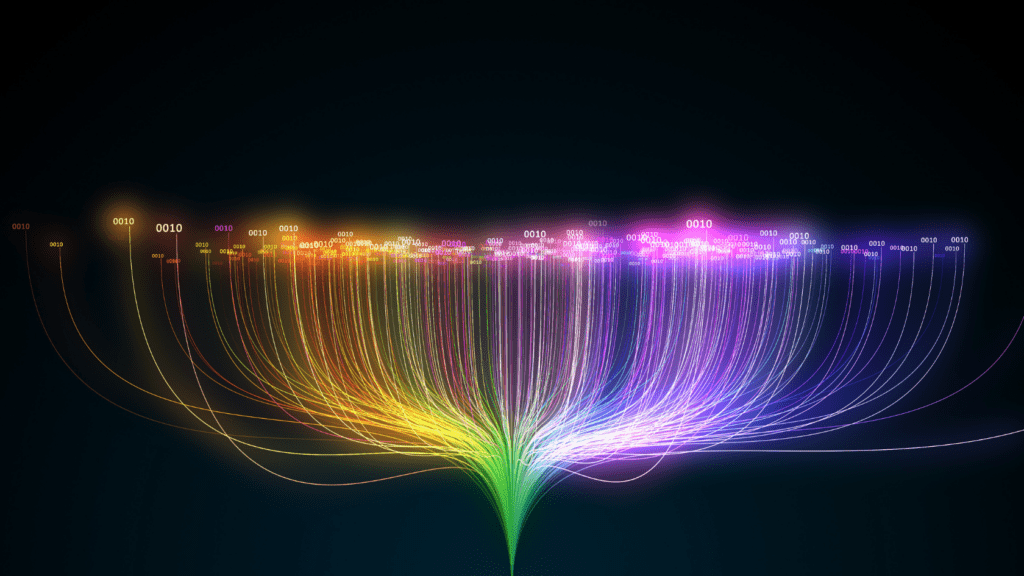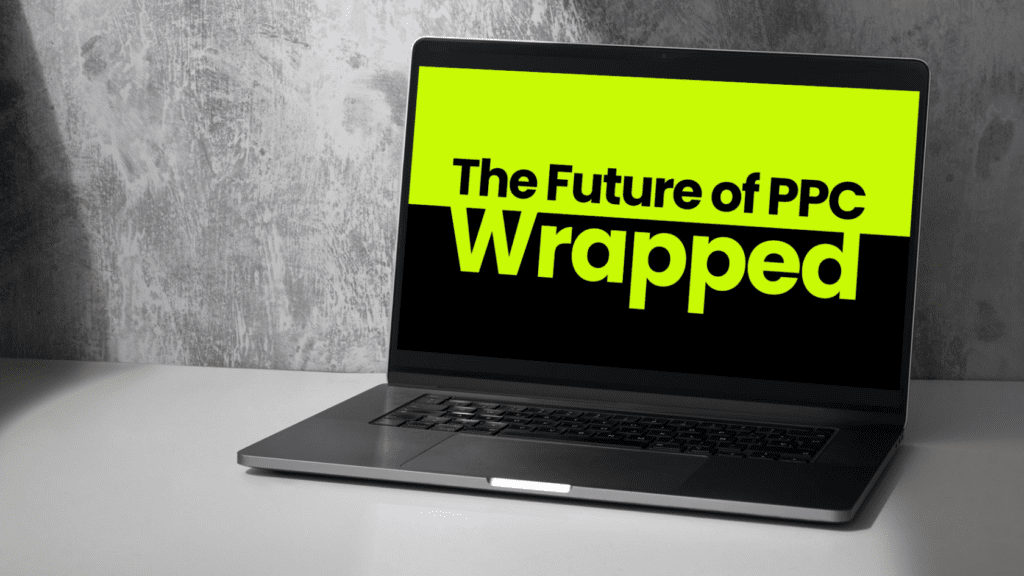As we enter the second half of 2024, explore the future of PPC advertising and how it’s driven by the significant strides in automation and Artificial Intelligence (AI).
These technologies are no longer just advantageous; they are essential. They enable marketers to streamline operations and achieve more targeted, effective campaign outcomes.
As a PPC consultant, looking ahead at the future of PPC is vital to understanding these changes and leveraging new tools and strategies to drive success, so I have broken down some key trends and insights I have seen from within the paid media marketing sector.
Automation and AI Optimisation
The Transformational Impact of AI in PPC
Automation and AI are revolutionising the future of PPC by introducing sophisticated, data-driven strategies that enhance targeting and optimise real-time bidding processes.
These tools free marketers from mundane tasks, allowing them to focus on strategy and innovation. For instance, AI-driven predictive analytics can anticipate market trends and user behaviour, offering actionable insights that drive decision-making and campaign adjustments.
The Role of AI in Enhancing Ad Efficiency
Artificial Intelligence (AI) has dramatically transformed how PPC campaigns are managed by introducing more sophisticated predictive analytics tools. These tools offer PPC consultants a deeper, more nuanced understanding of campaign performance potential, making it possible to optimise ads in ways that were not feasible before.
Deep Dive into Predictive Analytics
Predictive analytics in AI uses historical data, machine learning, and algorithms to predict future outcomes based on past campaign performance. This capability allows for highly accurate forecasts about which ad creatives, targeting options, and bidding strategies are likely to perform best. For instance, AI can analyse seasonality, consumer behaviour changes, and competitive shifts to recommend the optimal time to increase ad spend or adjust bids.
Streamlining Budget Allocation
AI-driven analytics significantly streamline the budget allocation process by identifying the most efficient use of resources. By predicting the performance of various campaign strategies, AI helps allocate budgets towards the ads and keywords most likely to yield high returns. This dynamic reallocation of resources ensures that PPC budgets are used more effectively, reducing financial waste and focusing spend on areas with the highest potential for conversion.
Data-Backed Campaign Adjustments
Every adjustment in a campaign, from slight tweaks in ad copy to significant shifts in keyword focus, can be data-backed with AI insights. This reduces the guesswork often associated with campaign management. For example, AI can suggest modifications based on A/B test results or real-time data on user engagement, ensuring that each decision is supported by concrete data. This approach not only improves overall campaign efficiency but also enhances adaptability by allowing marketers to respond quickly to market changes.
Reducing Waste and Increasing Conversion Potential
AI’s predictive capabilities extend to identifying underperforming aspects of a campaign, allowing marketers to prune or modify them before they consume a disproportionate share of the budget. Additionally, by foreseeing user engagement and conversion probabilities, AI optimises ad placements to target users most likely to convert, thereby increasing the overall conversion potential of the campaign.
Personalisation at Scale
Leveraging AI for Dynamic Content Creation
Personalisation is a key component of the future of PPC and pivotal to success. AI excels in analysing user data to tailor advertisements to individual preferences and behaviours, significantly boosting engagement and conversion rates.
The ability to dynamically adjust ad variables to match user expectations enhances user experience and improves the overall effectiveness of digital advertising campaigns.
87% of organisations worldwide believe that AI technologies will give them a competitive edge – Webfx
Advanced Audience Segmentation
Artificial Intelligence (AI) is critical in transforming audience segmentation, a foundational element of successful PPC campaigns. Through advanced data analytics and machine learning, AI can dissect vast amounts of data to segment audiences with unprecedented precision.
Leveraging Big Data for Granular Segmentation
AI systems are capable of processing and analysing data points from a variety of sources, including browsing behavior, purchase history, social media interactions, and demographic information. This rich data set allows AI to identify patterns and trends that may not be visible to human analysts. By leveraging these insights, AI facilitates the creation of highly granular audience segments based on specific behaviours, preferences, and needs.
Enhancing Campaign Targeting
With advanced segmentation, PPC professionals can tailor their campaigns more accurately. Ads can be customised to align with each segment’s distinct characteristics and preferences. For instance, AI can help identify a segment that prefers watching video content over reading text, enabling marketers to target them with video ads instead of display banners. This precision in targeting ensures that each audience segment receives the most relevant and engaging message, significantly enhancing the effectiveness of the campaigns.
Maximising Return on Investment (ROI)
Effective audience segmentation leads directly to improved ROI. By ensuring that PPC campaigns target the right audience with tailored messages, AI reduces ad spending on less interested or irrelevant audiences. Moreover, targeted campaigns typically see higher engagement rates, better conversion rates, and increased customer satisfaction as users encounter ads more relevant to their specific needs and interests.
Improving User Satisfaction and Brand Reputation
When ads are highly relevant, they contribute to a positive user experience. Users feel understood and valued when they see content that resonates with their preferences and interests. This not only improves user satisfaction but also enhances the brand’s overall perception. Brands that consistently deliver personalised, relevant content are more likely to build a loyal customer base and enjoy a positive reputation in the marketplace.
The Impact of Voice Search
Adjusting to Voice-Activated Searches
The rise of voice search in marketing presents new challenges and opportunities in the future of PPC. Adapting to the conversational nature of voice queries means optimising for longer, more natural-sounding phrases rather than traditional keywords.
This shift requires a deeper understanding of context and user intent, areas where AI can offer significant insights.
The Importance of Long-Tail Keywords in Voice Search
Optimising for voice search is a crucial aspect of modern PPC strategy, particularly as voice-activated devices continue to rise. The key to mastering voice search lies in understanding and utilising long-tail, conversational keywords that mimic users’ natural speech patterns.
Emulating Natural Speech Patterns
Voice searches are more conversational and detailed than text-based queries. They often include whole sentences or questions rather than the fragmented keywords typically used in traditional search engine queries. AI’s ability to process and analyse these natural language patterns allows PPC professionals to better understand and target the specific phrases that users are likely to say when using voice search.
Enhancing Visibility and Relevance in Voice Search
By focusing on long-tail keywords, campaigns can achieve more specificity and relevance. This improves visibility in voice search results and increases the likelihood that the ads will resonate more deeply with users. For example, instead of targeting broad terms like “weather forecast,” a more effective voice search keyword might be “What is the weather like today in London?” This level of detail ensures that the ads are served to users at the highest relevance, thereby improving engagement rates.
Aligning with AI Assistants’ Capabilities
Integrating AI assistants into everyday life is changing the landscape of digital interaction. These assistants, such as Siri, Alexa, and Google Assistant, are designed to understand and respond to natural language.
Optimising PPC campaigns for long-tail, conversational keywords aligns with the capabilities of these AI technologies, ensuring that ads are more likely to be included in the responses provided by these assistants.
Boosting Conversion Rates
Ads optimised for voice search are not just more likely to be seen; they’re also more likely to convert. When ads match the conversational and specific nature of voice queries, they more effectively meet users’ immediate needs. This relevancy boosts user trust and increases the chances of conversion, as the offers are directly aligned with the users’ expressed interests and intentions.
Data Privacy and Compliance
The Increasing Importance of Data Compliance
Data breaches and privacy concerns are a constant in 2024, compliance with data protection regulations like the General Data Protection Regulation (GDPR) and the California Consumer Privacy Act (CCPA) is not just a legal necessity but a critical component of building and maintaining consumer trust, playing a pivotal role not only in the future of PPC but marketing as a whole.
Navigating Complex Data Regulations
Understanding and adhering to these complex regulations requires a deep knowledge of the legal landscape and its implications for digital marketing practices. GDPR, for instance, affects any business dealing with EU residents, irrespective of the company’s location, imposing strict rules on data consent, access, and control. Similarly, CCPA provides California residents with unprecedented rights regarding their personal information, setting a precedent for other states and potentially federal legislation.
Implementing Privacy-Respecting Strategies
Marketers must be proficient in implementing strategies that comply with these regulations while delivering effective marketing messages. This involves rethinking how consumer data is collected, stored, and used in campaigns. Techniques such as privacy by design, which integrates data protection from the onset of designing marketing systems and strategies, are becoming the norm. Additionally, ensuring that data is used in a way that is both ethical and compliant can significantly enhance campaign efficacy and brand reputation.
Building Consumer Trust Through Transparency
Transparency about data usage isn’t just a legal requirement—it’s a strategic advantage that can distinguish a brand in a crowded market.
“In the future of PPC, transparency isn’t just a legal checkbox; it’s the cornerstone of building real, lasting trust with our customers. By openly sharing how we use data, we’re not just following rules—we’re inviting our audience into a partnership. This honest approach doesn’t just set our brand apart in a busy market; it builds a foundation of loyalty that transforms one-time clicks into lasting relationships.” – Tom, Founder
Demystifying Data Usage
Clear communication about how data is collected, used, and protected helps demystify the technologies behind AI and automation for consumers. This transparency is vital in an era of high consumer scepticism about data privacy. By openly sharing privacy policies and the steps taken to protect user information, companies can alleviate concerns and build trust.
Aligning with Consumer Expectations
Today’s consumers expect brands to respect their privacy and are likelier to engage with those who do. Transparent data handling practices reassure customers that their personal information is treated with care, enhancing their trust. This trust, in turn, fosters loyalty and can improve customer retention rates over time.
Enhancing PPC Campaign Effectiveness
Transparency in data usage also enhances the effectiveness of PPC campaigns. When consumers trust a brand, they are likelier to click on ads and engage with the content. Additionally, transparent data practices can lead to higher quality data being shared by consumers, which can be leveraged for more targeted and effective advertising.
Visual and Video Ads in the Future of PPC
As we look towards the future of PPC, it’s clear that visual content is taking centre stage. Visuals and video are not just components of modern PPC strategy; they are its central features, proven to engage users more effectively than text-based ads alone.
The Impact of Visual Storytelling
In the future of PPC, visual storytelling through video ads or compelling imagery will resonate with viewers on a deeper emotional level. This emotional connection is key to driving engagement and retention. By leveraging storytelling techniques incorporating dynamic visuals or videos, brands can create memorable ads that stand out in crowded advertising spaces. These visuals often communicate messages succinctly and powerfully than text, enabling quicker comprehension and longer-lasting impact.
Integration of Video in PPC Campaigns
Integrating video content into PPC campaigns offers many benefits that will become more pronounced in the future of PPC. Videos can simplify complex messages, making them easily digestible for the audience. Whether it’s explaining a product, showcasing a service, or conveying a brand’s identity, videos convey these messages quickly and effectively. Platforms like YouTube, TikTok, Instagram, and Facebook support various video ad formats, from short clips that play before the main content to longer, in-depth explainer videos. Each format offers unique advantages and can be used strategically based on campaign goals and target audience behaviours.
Interactive Visuals Enhance Engagement
Beyond traditional video, interactive visuals represent a significant advancement in the future of PPC advertising. These can include 360-degree videos, augmented reality (AR) experiences, or interactive infographics. Such content draws viewers in and encourages active participation, significantly enhancing engagement levels. For instance, a real estate company could use 360-degree video tours to allow potential buyers to explore properties virtually, leading to higher engagement and an increased likelihood of a visit or inquiry.
Driving Higher Conversion Rates
Including visual and video content in PPC campaigns has also been linked to higher conversion rates. Engaging videos and interactive visuals can effectively guide users along the buyer’s journey, from awareness to decision-making. They provide a richer experience that can help persuade users to act, such as subscribing to a service, registering for an event, or purchasing.
Leveraging Visual Data for Optimisations
Advanced analytics tools will allow marketers to measure the performance of visual content in real time in the future of PPC, providing insights into viewer engagement, drop-off points, and interaction rates. This data is invaluable for optimising video content and visuals to better meet the target audience’s needs and continually refine PPC strategies.
The Future of PPC: Wrapped
As we advance into planning 2025, the future of PPC is set to undergo transformative shifts driven by technological advancements and changes in consumer behaviour. Integrating AI and automation in PPC management not only refines the effectiveness of campaigns but also offers unprecedented efficiency in utilising data for decision-making. These tools are essential for navigating the increasing complexity of digital advertising environments, optimising real-time bidding strategies, and personalising user experiences at scale.
The emergence of voice search further complicates the future of PPC and opens up new avenues for engagement. Adapting to this trend involves a deep understanding of natural language processing and optimising for conversational queries, which are becoming more prevalent as voice-activated devices gain popularity. This adaptation is not just about technology but also about understanding human interaction patterns with machines.
The shift towards visual and video ads is not just a trend—it is a pivotal evolution in how information is conveyed and consumed online. As these formats deliver higher engagement and conversion rates, their integration into PPC campaigns will become increasingly essential for brands looking to capture attention and drive meaningful interactions in the future.
Furthermore, tightening data privacy regulations highlights the need for transparency and compliance in all digital marketing practices. PPC consultants must ensure their strategies uphold the highest data ethics standards, balancing effective marketing with respect for consumer privacy. This dual focus will not only help build consumer trust but also establish a brand as a responsible entity in the digital space.
The future of PPC is being reshaped by AI and data privacy regulations. Embracing these changes not only enhances ad precision but also aligns our strategies with evolving consumer expectations, setting the stage for more targeted and meaningful engagements. Staying ahead in PPC now requires a blend of innovation, adaptability, and a deep understanding of technology-driven marketing dynamics. – Tom, Founder
Looking forward, the ability to anticipate changes, adapt strategies swiftly, and adopt new technologies will distinguish successful PPC practitioners. Continuous learning and staying updated with industry trends are imperative. Leveraging these changes can provide significant competitive advantages, driving better campaign results and ensuring sustainability for clients moving forward.
By embracing these challenges and opportunities, PPC consultants can ensure that their paid strategies are current and ready for the future of PPC, leading to sustained success and growth in digital advertising.









